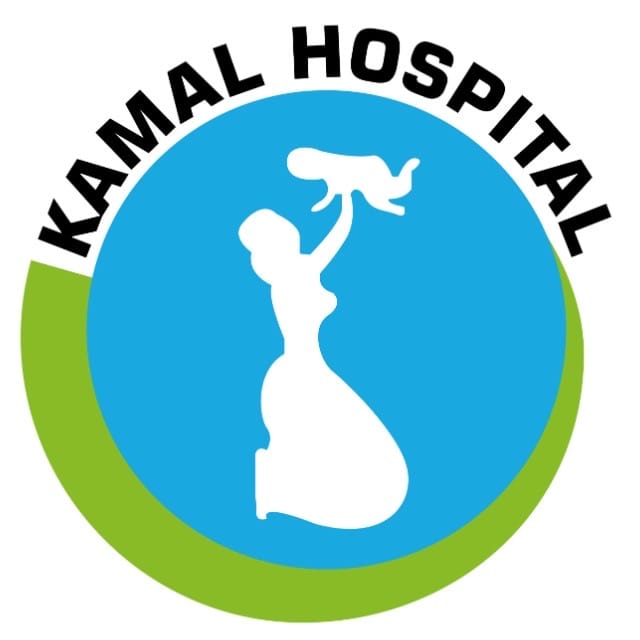What is First Prenatal visit?
Prenatal means before delivery. The period of pregnancy starting from the first day when you conceive to the day that you deliver is called Prenatal or Antenatal period.
Proper care during such an important time of your life is very essential as it helps in avoiding lot of preventable complications later in your pregnancy and lays down solid foundation for the good health of your baby as well. This care begins with your First prenatal visit.
Table of Contents
When should I have my First Prenatal Visit?
You should visit your gynecologist as soon as you skip your period. This initial assessment is very important to check if you are pregnant or not and to assess the status of your pregnancy. Your gynaecologist will also start certain medicines (like folic acid) that will prevent anomalies during the development of your baby.
If you have pain abdomen or vaginal bleeding along with missed periods, you should visit your doctor early, as sometimes the pregnancy may lodge in fallopian tube instead of reaching the uterus and starts growing there. This is called Ectopic Pregnancy. This type of pregnancy can rupture the fallopian tube and become life threatening; so it requires immediate management.
What to expect during my first Prenatal Visit?
During your first prenatal office visit, your gynaecologist will systematically evaluate you for the following things:
HISTORY
- A detailed history of your menstrual periods and the last menstrual period
- History of previous pregnancies
- History of any surgeries in the past
- History of any coexisting medical conditions like diabetes, hypertension, epilepsy, asthma, thyroid disorders, lung diseases, heart disease etc.
- History of any ongoing chronic medications for any reason
- History of previous vaccinations
- History of any drug allergies
- History of taking alcohol or smoking/Tobacco intake
It is very essential to tell everything and not skip out any parts of your history, even if you feel that the details may not be relevant. Let your gynaecologist decide that. Mention all medicines that you are currently taking or have taken in the past, including ayurvedic or homeopathic medicines. Don’t forget to mention any allergies to any drugs in the past.
GENERAL PHYSICAL EXAMINATION
Your gynecologist will do a detailed general physical examination:
- To look for signs of anemia, jaundice, cyanosis, edema or swelling anywhere in the body.
- Your height and weight will be noted on the first booking to establish a baseline.
- Your Vital signs (heart rate, blood pressure, respiratory rate, oxygen saturation, temperature) are also recorded on your first and subsequent visits.
- Your BMI (body mass index) will be calculated to judge the weight gain required during pregnancy and also to decide drug dosages.
SYSTEMIC EXAMINATION
A complete examination is done for all the organ systems of your body to see if everything is all right as sometimes, there may be certain problems which are present but may not have produced any symptoms till now. It is done so that if any problem is detected, it can be managed and optimized at an early stage. For example, you may never have breathlessness, but your systemic exam may reveal signs of asthma. The systemic exam includes:
- Examination of your cardiovascular status
- Examination of your respiratory system
- Examination of your abdomen and pelvis
- Examination of your neurological system
- Examination specific to your complaints
ULTRASOUND SCAN
Ultrasound scan is an essential part of your pregnancy check up. It is done at various intervals in pregnancy for different purposes. First ultrasound is done between 7-8 weeks of pregnancy. Other ultrasound scans done include NT Scan done between 11-13 weeks of pregnancy, Level 2 ultrasound scan done at 18-23 weeks of pregnancy, Fetal ECHO at 18-24 weeks and Growth scans at regular intervals.
For more information on ultrasound scans in pregnancy, please read Ultrasound in pregnancy
LAB INVESTIGATIONS
Your gynaecologist will order some Investigations at your first prenatal visit. These may include some blood tests and urine test. Following are some of the investigations that may be ordered:
- Complete blood count (CBC)
- Fasting or random blood sugar
- Renal function tests
- Liver function tests
- Thyroid function tests
- Blood grouping
- Urine complete examination (repeated on every visit)
- VDRL (this is a test to rule out syphilis)
- HIV (Test to rule out HIV or AIDS virus)
- Hepatitis B and C (Tests for hepatitis viruses)
- Test for coagulation of blood (Prothrombin time, Activated partial thromboplastin time)
- Hemoglobin electrophoresis to rule out thalassemia
- Vitamin D3 levels
- Electrocardiogram (ECG)
- DIPSI test: 75 gram glucose will be given to you by your doctor. You have to dissolve this in a glass of water and drink approximately 1 hour after the last meal. Blood sugar levels are checked after 2 hours. For normal result, the value should be less than 120 mg/dL. Values more than 140 mg/dL are abnormal. Values between 120 to 140 mg/dL are also suspicious and dietary modifications are indicated. (This test should be preferably repeated in each trimester)
Evaluation of Chromosomal defects in baby
- Dual marker or double marker test: in this test, hormonal levels are assessed to find out if you are at an increased risk of developing chromosomal defects like Down’s Syndrome or Edward Syndrome or Patau Syndrome. This test is done between 11 to 13 weeks of pregnancy.
- Triple marker test: This is a prenatal screening test for assessing genetic disorders and birth defects in the development feeders by measuring hormonal levels of Alpha-feto protein, HCG and Estriol. This test is done between 15th and 18th week of pregnancy.
- Quadruple marker test: This test is similar to triple marker test but instead of three parameters, four parameters are used to assess for defect in the baby. The fourth parameter is Inhibin-A, in addition to the three parameters of Triple Test.
- Non invasive prenatal testing (NIPT): It is a method to determine whether the fetus will be born with genetic abnormalities or not. This test analyzes the fragments of fetal DNA circulating in mother’s blood. The results are comparable to that of Amniocentesis in which amniotic fluid is drawn out of mother’s womb to look for fetal cells in it. These fetal cells or DNA fragments are then analyzed to look for chromosomal defects.
It is not necessary that all these tests will be done for you. Your gynaecologist will order some of these tests based on your condition and the prevalent practices in your area.
Will my gynaecologist prescribe any treatment?
Your gynaecologist will prescribe certain medicines and health supplements to boost your health and also to take care of any deficiencies detected in your testing.
- For the first three months of pregnancy, folic acid with combination of methylcobalamine is usually given to prevent fetal neural tube defects.
- After the first three months or first trimester, your doctor will prescribe you iron supplements, B-complex, calcium and protein supplements. These are very important for preparing your body to meet the increased demands of pregnancy. These need to be continued till delivery.
- If you are already on some medical management like treatment for epilepsy, asthma, diabetes, hypertension, thyroid disease, heart disease, then your doctor will plan to continue, modify, change or stop the medication, depending on its safety in pregnancy.
- Your doctor may also prescribe you therapies for symptomatic relief of common first trimester complaints like nausea vomiting, constipation, headache, backache etc.
Vaccination in Pregnancy
Your gynaecologist will advise you to have certain vaccinations during your pregnancy time. These vaccinations are very important and play a vital role in preventing both mother and baby from many vaccine preventable infections. Some of these vaccinations are Influenza vaccine or Flu shot, Tdap vaccine and Hepatitis B vaccine.
For more information on vaccination in pregnancy, please read Vaccination in Pregnancy
Carry home message
Prenatal period is a very important period of your pregnancy. You should consult with your obstetrician as soon as you miss your periods so that she can evaluate you and formulate an individual care plan for you. Attend all your antenatal visits and take all health supplements as advised by your obstetrician. This goes a long way in ensuring a healthy pregnancy and good post pregnancy outcome. Stay healthy!

For more such interesting information on women's health, kindly visit our website Expert Gynae Care and our YouTube channel @drnidhigarg
To consult Dr. Nidhi Garg, please visit us at Kamal Hospital, Doaba Chowk, Jalandhar-144004 or Visit our website kamal Hospital jalandhar or Expert Gynae Care



1 thought on “First Prenatal Visit”
Comments are closed.